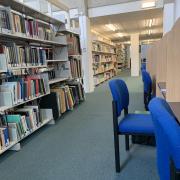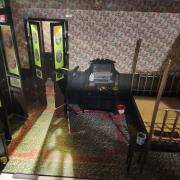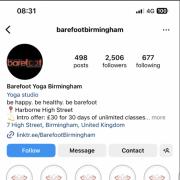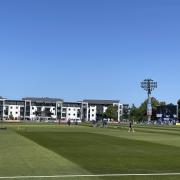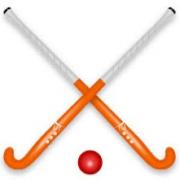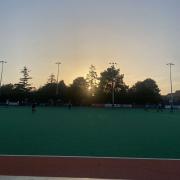
Here in Kent is where one of England rugby league wheelchair teams training grounds are located. The team trains in 2 different locations: Medway Park and Sheffield. Their head coach, Mark Roughsedge, was kind enough to speak to us for a short interview, discussing the sport and the role he plays within the team.
We started off by discussing how the game plays, and the 3 main variations:
“In recent times the sport has made a conscious effort to create more opportunities for the wider community to participate. Examples of this can be found in the 3 variants of the sport:
Wheelchair Rugby League
It is the most inclusive and accessible variant of Rugby League for all abilities. It is the only Rugby League offer that is wholly inclusive and teams feature wheelchair athletes and able-bodied players.
A brief overview of the game includes:
•There are five players on each side
•The object of the game is to score tries
•Tackles are made in the same way as Tag Rugby by pulling off the attached tag
Physical Disability Rugby League
Nine-a-side teams, consisting of seven players with a physical disability and two able-bodied players who do not have physical disabilities.
Physical Disability Rugby League is a running format of Rugby League which involves both full contact and touch tackle options, for all players who have physical disabilities.
Rugby League team, including Mark Roughsedge (Head Coach)
Learning Disability Rugby League
The emphasis in LDRL is on inclusion and enjoyment. It was conceived to provide a team-sport experience to those who would previously not have had such an opportunity.
LDRL is played on a quarter-pitch with seven-a-side teams. The games are non-contact and generally follow Tag RL rules.
Teams are allowed 2 able-bodied players who will play as facilitators, to ensure the match is both free-flowing and well-balanced. Typically the able-bodied roles are taken up by current or former Rugby League professional players.”
We then moved on to discuss how funding has and will impact the team:
“Due to the nature of the sports demographic, building a sustainable model based on membership fees is difficult to create. With Wheelchair sports there is considerable cost with regards to running a club so financial support is absolutely critical especially at the start. A durable sports Wheelchair can cost anywhere between £1, 500 and £6, 000. Running costs include the maintenance of equipment, hall hire and transport hire. Without financial support from various sources such as Sport, England clubs would simply not be able to survive. Financial sustainability is a huge challenge.”
Mark then discussed his role and what it is that he does within the team, due to being a head coach:
“As England Wheelchair Rugby League Head Coach, my roles and responsibilities include:
the selection, training, coaching and leadership of the National Team.
Management of the squads assistant coaches and support staff
Leading the talent ID and selection process of the National programme.
Working with the England Performance Unit and RFL management to set an appropriate schedule of practices and competition throughout the team cycle.
Participating in and leading all team practices and competitions.
Associated media duties”
The team themself are very fond of Mark, willing to take time off work so they can be there for the team when it is most needed. Especially since most of the team are amateur players, it really shows a commitment to the England wheelchair team and how they are going to go so much further.
Following on from this, we further discussed what more everyone can do to help show their support for the team. Mark told us:
“With the 2021 World Cup just a couple of years away you can already see the impact it is having on the sport. The competition has pledged financial support to help grow and sustain community Rugby League, included in this is disability and Wheelchair Rugby League. A number of clubs have already accessed this which means clubs can provide great environments to play the sport.
It is difficult to pinpoint specific areas of support outside of investment as needs are so wide-ranging. Where I think there could be real value added is creating an environment and forum where there are opportunities to share good practice. This would create a collaborative approach to getting better and create better places for people to engage in the sport.”
The team is already doing so well, so show support, get behind your country, and grow that rugby family.






